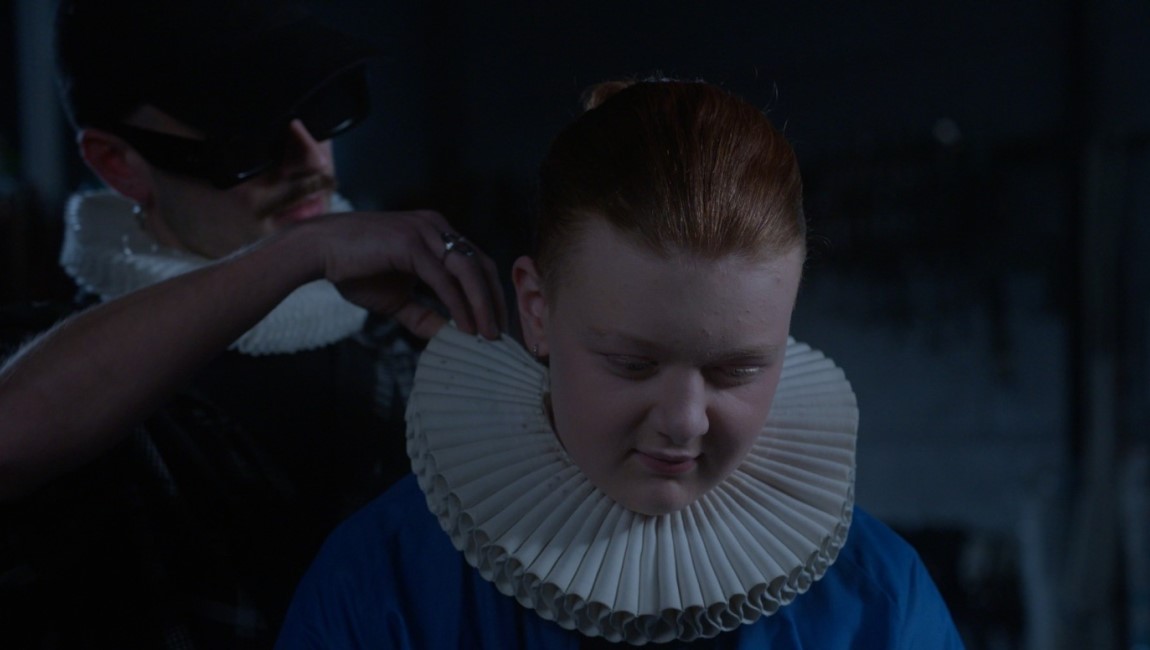Berlinale’s Encounters section has largely been a platform for lesser known filmmakers since its inception, though it’s also seen its fair share of high profile directors, including Bertrand Bonello, Cristi Puiu, and Hong Sang-soo. This year Hong is joined by Paul B. Preciado, a prominent writer, philosopher, and curator directing his first film. Orlando, My Political Biography begins with Preciado narrating its impetus: having been asked why he hasn’t written a biography, Preciado notes that such a thing already exists in Virginia Woolf’s Orlando. While such an assertion is obviously not literal, Preciado’s film takes it as such, applying the novel to (or perhaps applying to the novel) not only his own biography, but a wide set of specific and broad trans experiences.
“Freely adapted” from Woolf’s novel, the film does take on its narrative structure as a sort of system of organization. Its primary thrust features a number of trans and non-binary people playing the role of Orlando. Each actor introduces themself with their own name, but what may initially appear to be a similar approach to last year’s Encounters entry Mutzenbacher quickly gives way to a more explicit blurring of personal narrative and adaptation. Preciado cuts between talking head interviews with the actors and scenes from the novel, but actors flow from discussing their own experiences to speaking as Orlando in the first person, sometimes on the scale of a sentence, and the scenes of adaptation are shot on a soundstage, temporally and spatially expanding themselves beyond the context of the novel into that of filmmaking. This latter approach is eventually revealed to be self-reflexive in its self-reflection, as Preciado explicitly compares the trans experience of gender to a behind the scenes look at filmmaking.
Blurring the lives of the film’s trans performers (though the film is listed by the festival as a documentary performer seems a far more apt descriptor than subject) with the story of Orlando, meanwhile, serves a number of purposes. It supplies the trans performers with a liminal space in which to be vulnerable; by hybridizing their testimony the need to accurately represent is dissolved, hopefully giving way to a more transcendent truth. It also loops in the film’s inciting observation. Though there is not and cannot be a universal trans experience, Woolf’s novel presents itself in its imperfection as a model for one. Preciado often directs his narration at Woolf, alternately expressing gratitude for the existence of her novel and regret at its deficiencies. Expanding beyond the film’s performers, one section of the film contrasts early footage of trans women beginning their public lives, returning from overseas much as Orlando did after his far more mystical transition. Finally, he tries to reconcile the uncanny realities and clumsy impossibilities of Woolf’s portrayal of transition by performing literal surgery on the physical book.
When a writer transitions their craft to filmmaking, their style is often subsumed by conventions of the new form. This can be especially true when taking on established fiction and non-fiction forms. Though the hybrid approach Preciado takes has also become more and more established throughout this century, he uses it to evade convention, and so while his film may not have some of the polish of a more experienced filmmaker, he is able not only to retain his voice but amplify those of his collaborators. In this, he takes advantage of the form of filmmaking not only for the new opportunities of its product and subsequent distribution, but for its methodological uniqueness. It’s an approach to which more filmmakers, whether those who’ve studied and applied the form or those new to it, would do well to take note.
DIRECTOR: Paul B. Preciado; CAST: —; DISTRIBUTOR: Sideshow/Janus Films; IN THEATERS: November 10; RUNTIME: 1 hr. 39 min.
Published as part of InRO Weekly — Volume 1, Issue 8.







